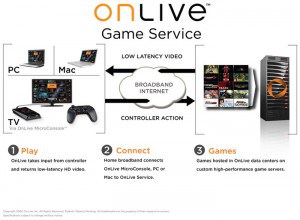Amazon.com is talking to TV show distributors and media companies about launching a new online streaming service comparable to Netflix to provide online television programming, according to sources familiar with the talks.
Amazon already offers $1.99 online access to individual shows and movies, but the new service would charge a flat fee for unlimited access.
Various news reports indicate Amazon has approached NBC/Universal Studios, Time Warner, and CBS/Viacom, among others.
The Wall Street Journal obtained access to one proposal that would bundle the yet-unnamed service with its existing Amazon Prime service, which charges frequent Amazon shoppers $79 a year to get two-day “free shipping upgrades.”

Would Amazon.com have access to current hit shows or find themselves restricted to showing 1970s Wonder Woman reruns?
Analysts say Amazon Prime’s steep annual fee has only attracted a small percentage of Amazon customers who perceive value from it, but including unlimited TV programming would give Amazon a built-in subscriber base and potentially attract new interest among current Amazon customers who want something more than two-day shipping for $79 a year.
Large web players are jockeying for video programming, seen as the next big thing as broadband becomes commonplace in most American homes. It’s already a huge revenue generator. Americans spent $340 million dollars watching TV online and another $300 million for online movies in 2009, according to Adams Media Research.
Those familiar with Amazon’s proposed service say the service is likely to find studios amenable to licensing older TV shows and second-run content, similar to what Netflix streams today, but will likely find strong resistance to licensing first-run, current network shows. Most TV networks and major cable networks reserve those for services like Hulu and the cable industry’s TV Everywhere, which they own and control.
Some studios are concerned that licensing reruns of current shows might be eating into their lucrative deals with cable networks, which license network TV programming as part of cable programming lineups. But many studios also recognize that viewers blockaded from access will simply pirate the shows online, downloading them from newsgroups, commercial file storage networks, or peer-to-peer services.
[flv width=”640″ height=”500″]http://www.phillipdampier.com/video/Bloomberg Sony to Expand Service Amazon May Start Online Video 9-1-10.flv[/flv]
Bloomberg News covered Amazon’s video service in this morning’s Business Briefs, which also gave word Sony was dramatically expanding video options on its Playstation console and Motorola was putting $3.5 billion in cash into its mobile phone and set-top box unit destined to be spun-off in 2011. (1 minute)


 Subscribe
Subscribe
